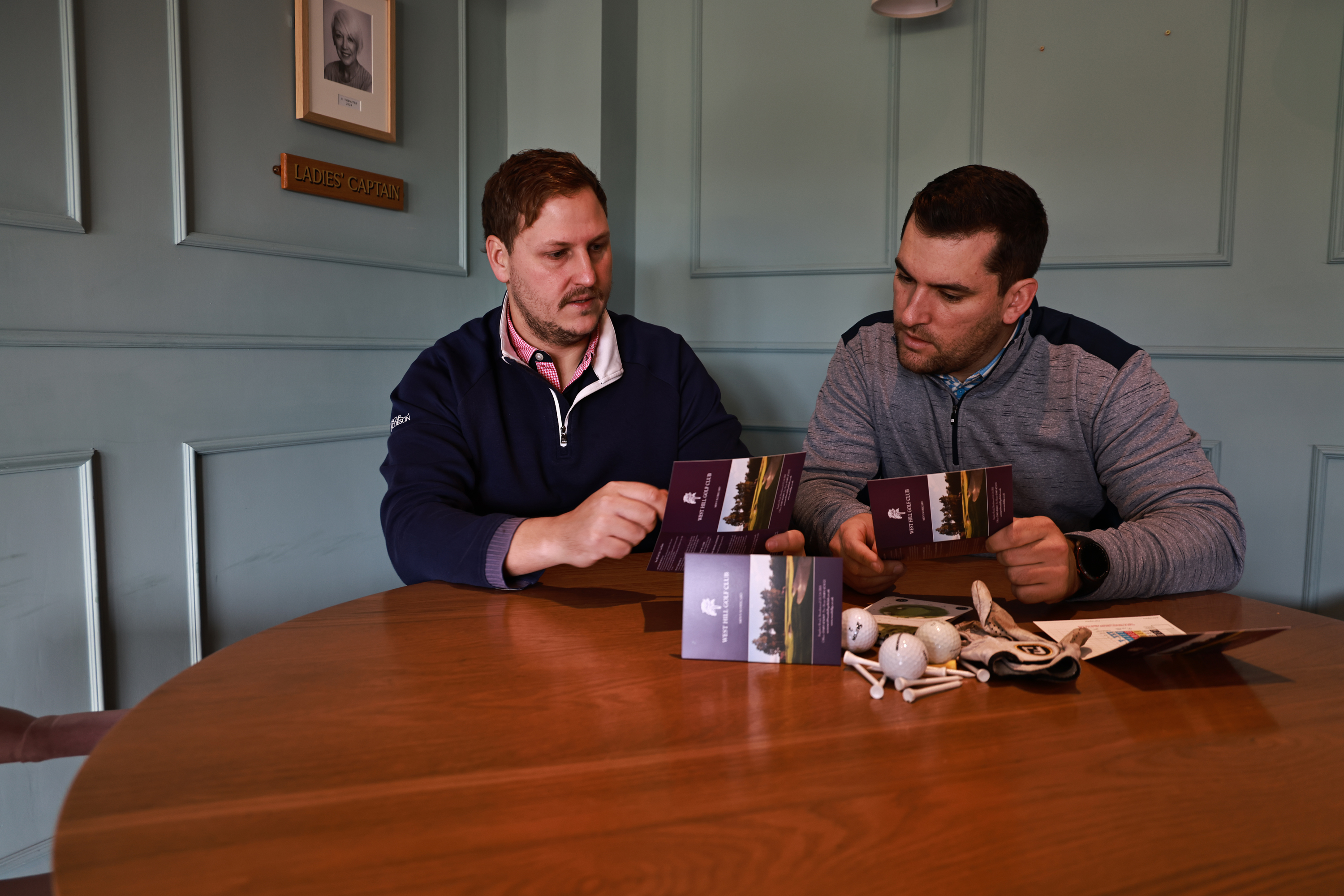There's A Growing Divide Between Club Members And Nomadic Golfers When It Comes To Handicapping... And I'm Concerned About It
Some golfers believe competition play should be a pre-requisite to achieving a ‘valid’ handicap, while others feel you should be able to submit a card whenever you want


I don’t think it’s unreasonable to suggest that golfers can be an opinionated and, at times, pedantic bunch. Everyone has their own thoughts on LIV Golf, whether Ryder Cup players should be paid, etiquette, dress codes and slow play, but handicapping arguably sits atop the list of most-discussed golfing topics.
It makes sense. The World Handicap System is a polarising subject, as future frameworks no doubt will be. And it’s hardly as if CONGU – the previous iteration – was universally popular. It’s an impossible job to create a system that works perfectly for everyone as the golfing paradigm continues to evolve.
But it does feel as though amateur golf is at a crossroads. The sport is trying to keep traditionalists on side while simultaneously attempting to modernise and appeal to a new generation of players. From conversations I’ve had and comments I’ve read, it seems many long-standing club golfers aren’t overly thrilled about handicapping.

But why? Until relatively recently, you had to be a member of a golf club to maintain an official handicap. Supplementary scores – any cards put in outside of official competition play – only became permitted in 2008 under CONGU. Now, non-club members can have official handicaps made up entirely from scores returned in casual/non-competition rounds.
There are some people out there who feel handicaps should only be maintained in official competitions, and more still who believe only a select number of bounce or casual-round scores should be included in your eight from 20.
Indeed, we asked our X followers this question: 'Do you think it's right if all eight of your counting handicap rounds come in casual/non-competition games?'. Some 44% replied 'yes', while 56% answered 'no'. Therein lies the issue.
Many low-handicap club golfers also feel strongly that the WHS has ruined competitions for low-single-figure and scratch players. The prevailing view from this category of player is that it’s impossible for them to win club competitions (indeed, the data would suggest it’s very difficult). Others believe mid-handicappers have it too easy and that golf is the only sport that rewards mediocrity.
Get the Golf Monthly Newsletter
Subscribe to the Golf Monthly newsletter to stay up to date with all the latest tour news, equipment news, reviews, head-to-heads and buyer’s guides from our team of experienced experts.

Handicapping is arguably golf's most-discussed topic
Understanding both sides
If you’ve spent most of your life playing competition golf for handicap purposes, it’s completely understandable if your views resonate with the above. Clearly, official events come with more stress and more on the line than casual knocks with your friends. It’s also extremely hard to win a competition if your handicap is in the 0-5 range.
Most nomadic golfers and mid-/high-handicap golfers I’ve spoken to have more than a degree of sympathy. However, there’s a feeling that club golfers can sometimes come across as superior and more honourable than non-members; it's almost as if there’s an undercurrent of judgement.
To be clear, I’m only talking about a minority of club members here. But I’ve certainly had handicap conversations where I haven’t liked the implications – that all club members are bastions of integrity and nomadic golfers are more likely to manipulate their handicaps. You can be a member of 30 years who’s crooked as a stick or a beginner who’s as honest as they come.
Golf has repeatedly been accused of being stuck in its ways and I think that criticism extends into the handicapping sphere. There’s often a reluctance to modernise and move with the times. It’s a bit of a plague.
Club membership doesn’t work for everyone, but that doesn’t mean nomadic golfers should be considered inferior or feel guilty if they enter a competition with only casual rounds featuring in their best eight from 20.
Recent cultural, societal and financial shifts mean golf club membership isn’t viable for everyone. If the sport isn’t seen as inclusive, existing players and prospective golfers will be turned away.
Of course, rules and regulations are important, but if you abide by iGolf’s terms, your handicap is as valid as someone who plays exclusively in club competitions. In my mind, golf would be in a healthier place if traditionalists tone down their disquiet and accept reality.
Why fight it? Why does it really matter? If you shoot a good score in a competition and lose out to a nomadic player with a better one, so what? Does this even happen often? You’ve still had a great day on the course if so. Are you really that bothered about losing out on a bar tab or a dozen golf balls?

Camaraderie is one of golf's great strengths
The bigger picture
What’s a better scenario for the game in general: a nomadic golfer – someone who may be considering future club membership – feeling empowered to enter a competition and winning, or being looked down upon and discouraged because life circumstances mean membership hasn’t been a realistic option?
The player in question may be working their way back after injury or illness; their two children may now be old enough to afford them more time on the course again; they may have re-discovered golf again during the pandemic; or they may have recently moved for work or family reasons to a place that makes club membership difficult or impossible. You can be a serious or committed golfer without a membership to show for it.
I’d also like to dispute the notion that there’s no pressure during non-competition rounds. If you know you’re putting a card in, it plays on your mind, even if you’re enjoying yourself. The biggest golfing battles are against your own mind, and only very few people can quiet that down if there’s something – no matter how small – on the line.
Naturally, some people will try to cheat the system. I’m sure everyone reading knows someone who has put in a card at the end of a round when they had no intention to at the beginning. But that’s something both club and iGolf members are guilty of.
I will say at this point that I’m opposed to nine-hole counting scores, but anyone who wants to maintain an accurate handicap should be applauded and encouraged.
There’s now a pathway in place from iPlay – where beginners can track rounds, get a membership number and sign off iGolfers’ scores – to iGolf to club membership. It would be a shame if anyone were to be discouraged at any stage by outdated or judgemental thinking. After all, camaraderie is one of the game's biggest selling points.

Nick Bonfield joined Golf Monthly in 2012 after graduating from Exeter University and earning an NCTJ-accredited journalism diploma from News Associates in Wimbledon. He is responsible for managing production of the magazine, sub-editing, writing, commissioning and coordinating all features across print and online. Most of his online work is opinion-based and typically centres around the Majors and significant events in the global golfing calendar. Nick has been an avid golf fan since the age of ten and became obsessed with the professional game after watching Mike Weir and Shaun Micheel win The Masters and PGA Championship respectively in 2003. In his time with Golf Monthly, he's interviewed the likes of Rory McIlroy, Justin Rose, Jose Maria Olazabal, Henrik Stenson, Padraig Harrington, Lee Westwood and Billy Horschel and has ghost-written columns for Westwood, Wayne Riley, Matthew Southgate, Chris Wood and Eddie Pepperell. Nick is a 12-handicap golfer and his favourite courses include Old Head, Sunningdale New, Penha Longha, Valderrama and Bearwood Lakes. If you have a feature pitch for Nick, please email nick.bonfield@futurenet.com with 'Pitch' in the subject line. Nick is currently playing: Driver: TaylorMade M1 Fairway wood: TaylorMade RBZ Stage 2 Hybrid: Ping Crossover Irons (4-9): Nike Vapor Speed Wedges: Cleveland CBX Full Face, 56˚, Titleist Vokey SM4, 60˚ Putter: testing in progress! Ball: TaylorMade TP5x
-
 PGA Tour Truist Championship Creator Classic Line-Up And Format Revealed
PGA Tour Truist Championship Creator Classic Line-Up And Format RevealedThe PGA Tour has announced the line-up for the second Creator Classic ahead of the Truist Championship - with YouTubers from outside golf taking on the challenge
By Paul Higham
-
 Are You Tired Of Your High-Handicap Golfer Status? These 4 Substantiated Tips Are Your Salvation
Are You Tired Of Your High-Handicap Golfer Status? These 4 Substantiated Tips Are Your SalvationBeing a high-handicap golfer is not easy, with consistency being difficult to establish and progress hard to come by... until you try these four simple tips!
By Barry Plummer